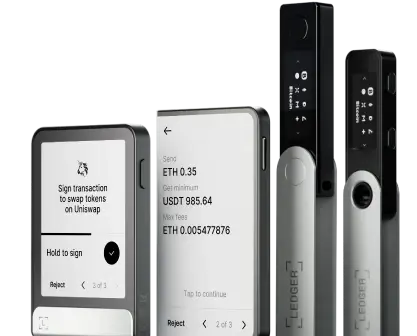Enterprise | 10/18/2023
Unlocking Institutional Opportunities: Navigating the World of Asset Tokenization
In the rapidly evolving landscape of financial services, asset tokenization has emerged as a pivotal force, promising transformative possibilities for institutions. A recent report, co-authored by the Boston Consulting Group (BCG) and investment firm ADDX, sends a clear signal of the industry’s direction. It projects that the value of asset tokenization is poised to soar, potentially reaching a staggering $16 trillion by the year 2030. Citi, a global financial giant, forecasts $4 trillion to $5 trillion in tokenized digital securities and $1 trillion in distributed ledger technology-based trade finance volumes, all expected to materialize by the end of this decade.
This shift towards asset tokenization is not a speculative trend. It represents a concrete manifestation of financial institutions recognizing the potential and advantages that come with tokenizing assets. The foundations of traditional finance are being reimagined, as the potential for liquidity, efficiency, and accessibility takes center stage.
As this transformation gathers momentum, financial institutions find themselves at a crossroads, faced with challenges and opportunities. As a result, an increasing demand is emerging for tailored solutions that match institutional requirements. In this blog post, we will delve into the world of asset tokenization, simplifying its essence, exploring the challenges faced by institutions, and explaining how Ledger empowers financial institutions to navigate this landscape through Ledger Enterprise.
What is asset tokenization?
Tokenization at its core refers to the process of creating digital tokens on a blockchain that serve as representations of real-world assets, whether tangible or intangible. These tokens act as digital certificates of ownership, encapsulating the value and rights associated with the underlying assets. For financial institutions, this concept holds the potential to revolutionize the way assets are managed, traded, and accessed.
Asset tokenization encompasses a diverse array of assets. It extends its transformative reach to encompass traditional tangible assets such as real estate, agricultural or mining commodities, and even analog artworks. In the same breath, it also encompasses financial assets like equities and bonds, as well as non-tangible assets such as digital art and intellectual property.

Asset tokenization doesn’t digitize assets for the sake of convenience; it imbues these digital tokens with the full spectrum of ownership and legal rights associated with the original assets. Holding a digital token on a blockchain is equivalent to holding the physical asset itself but with the added advantages of digital accessibility, enhanced liquidity, and transparency.
The underlying blockchain technology acts as a public, immutable ledger that safeguards the integrity of these tokens. This means that financial institutions and investors alike can trust that their ownership of underlying assets cannot be tampered with or compromised in any way.
The Challenges of Asset Tokenization for Financial Institutions
As financial institutions explore asset tokenization, they encounter several key challenges that need addressing.
- Complexity in Smart Contract Development: One of the foremost challenges faced by financial institutions when venturing into asset tokenization is the complexity and cost associated with developing smart contracts. The expense and technical intricacies involved can be daunting, especially for institutions unaccustomed to blockchain development.
- Security Concerns: Security is paramount when dealing with digital assets. The risk of breaches, fraud, and vulnerabilities in tokenized assets poses a significant threat.
- Inefficient Token Lifecycle Management: Managing the entire lifecycle of tokens, from issuance and trading to eventual redemption or transfer, can be cumbersome and inefficient. Traditional systems often lack the streamlined processes necessary for efficient token management.
- Technological Entry Barrier: For many financial institutions, adopting blockchain and asset tokenization represents a significant technological leap. Overcoming the initial barriers of understanding, integration, and adaptation can be daunting.
- Smart Contract and Token Governance: Ensuring the governance and compliance of smart contracts and tokenized assets is a multifaceted challenge. Institutions must navigate the complex regulatory landscape while maintaining transparency and control over their digital assets.
Tokenizing tomorrow with Ledger Enterprise: Seamless, Simple, Secure
In order to help financial institutions navigate the world of asset tokenization, our goal is to provide a solution that offers ease of use through a no-code UI and a no-tech Token Factory, a one-stop shop for comprehensive token lifecycle and business management, as well as enterprise-grade governance, finance-grade security, and cost-efficient solutions that facilitate scalability and drive revenue growth.
To achieve this vision, we have forged strategic partnerships with industry leaders Deloitte, Bitbond, Eniblock, and Tokeny, ensuring that our solution is backed by unparalleled expertise and resources.

With the Ledger Enterprise platform, we offer a single, unified space to launch and manage all aspects of your tokenization projects. No coding skills are required.
Protecting Your Tokens and Consumers:
Our solution ensures that you can enter new markets and drive revenue without exposing your brand’s reputation and digital assets to undue risks.
Maintaining Full Control Every Step of the Way:
We understand that control is essential. With our platform, you have the power to implement your governance rules, track assets in real time, and make fully informed decisions.
A User-Friendly Experience:
Navigating the world of asset tokenization has never been easier. Our platform offers an intuitive and user-friendly interface that simplifies the entire journey.
Security by Design:
Security is embedded in every aspect of our solution. You never leave the secure environment of our ledger, ensuring that your assets and operations are protected at all times.
With our comprehensive solution, we strive to provide financial institutions with the tools they need to thrive in the world of asset tokenization. It’s not just about simplifying the process; it’s about setting a new standard for security, control, and ease of use in this rapidly evolving landscape. Learn more about how the Enterprise platform can help you with asset tokenization by checking out our product demo on enterprise.ledger.com/tokenization
Learn more about our partners
Bitbond: providing scalable tokenization infrastructure for financial institutions and enterprises, with a proven track record supporting 30+ institutions since 2019. Bitbond also offers advisory services with end-to-end support.
Tokeny: leading global provider of technology solutions that enable securities issuers, agents and investors to seamlessly issue, manage, and transfer digital assets on a secure and efficient blockchain infrastructure.
Eniblock: technology provider with 5+ years of experience building scalable blockchain solutions for large European enterprises. Eniblock offers enterprise-grade APIs and SDKs that make it easy to incorporate Web3 experiences into customer journeys.
Deloitte: Active in 150+ countries, leads in blockchain consultation and audit services. Collaborating globally, Deloitte facilitates innovative blockchain projects, guiding businesses and governments in leveraging digital assets effectively.





























